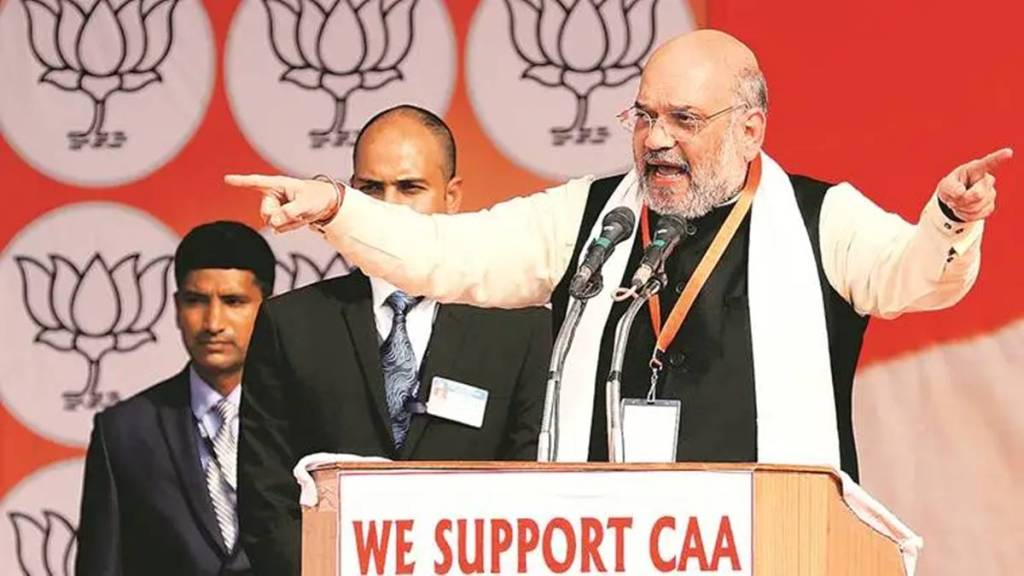Faced with a flurry of criticism from Opposition parties over the rollout of the Citizenship Amendment Act 2019, Union Home Minister Amit Shah categorically ruled out any chances of a rethink on the law and said it would “never” be rolled back.
“They (the Opposition) know the INDIA alliance won’t come to power. CAA has been brought by the BJP government, the Narendra Modi government. It’s impossible to repeal it,” Shah said in an interview with news agency ANI.
Hitting out at the Opposition for indulging in the “politics of lies”, Shah said there was no design in notifying CAA rules just ahead of the Lok Sabha elections.
“The BJP said in its manifesto in 2019 that it would bring CAA and give citizenship to refugees from Afghanistan, Bangladesh and Pakistan. The party came to power with a majority. In 2019, it was passed by Parliament but got delayed due to Covid… The Opposition wants to do appeasement politics and wants to consolidate their vote bank,” he said.
NRC has nothing to do with CAA
The Home Minister said that the National Register of Citizens (NRC) has “nothing to do with the CAA”. He added that there was “no need for for minorities or any other person to fear because there is no provision in CAA to take away anyone’s citizenship”.
“CAA is only to give rights and citizenship to Hindus, Buddhists, Jains, Sikhs, Christians and Parsi refugees from Afghanistan, Bangladesh and Pakistan,” he said. Shah’s clarification contradicts his earlier stand that the NRC would follow the CAA, a statement that led to protests against the BJP-led Centre over allegations that the law was being brought to target Muslims.
Countering the allegations of an “anti-Muslim” design, Shah said there was “no need for for minorities or any other person to fear because there is no provision in CAA to take away anyone’s citizenship”.
“CAA is only to give rights and citizenship to Hindus, Buddhists, Jains, Sikhs, Christians and Parsi refugees from Afghanistan, Bangladesh and Pakistan,” he added.
Can states block CAA rollout?
The notification of CAA rules has been followed by some governments in Opposition-ruled states like West Bengal, Tamil Nadu and Kerala promising not to allow the implementation of the law in their respective states. However, Shah said that states enjoy no right to stall a law on citizenship approved by Parliament.
“They also know they don’t have the rights. Article 11 of our Constitution gives all the powers to make rules regarding citizenship to India’s Parliament. This is a Centre’s subject, not the state’s… it’s not a combined subject,” Shah said, adding that even Opposition parties will come around once elections are over
Protests in Assam
As protests resurfaced in Assam following the implementation of CAA, Shah made it clear that the law will be implemented in Assam and other parts of the country. “Only the States in the North East where two types of special rights have been granted, only those areas will not implement CAA. This includes the areas where there is a provision for the Inner Line Permit (ILP) and the areas that are granted special status under the 6th Schedule of the Constitution,” he said.
The state saw multiple protests following the passage of the law in 2019 as the CAA was seen as a violation of the 1985 Assam Accord, which stipulated that only those foreigners who had come into the state before March 24, 1971 — and not December 31, 2014, as the CAA states — would be included as citizens.


